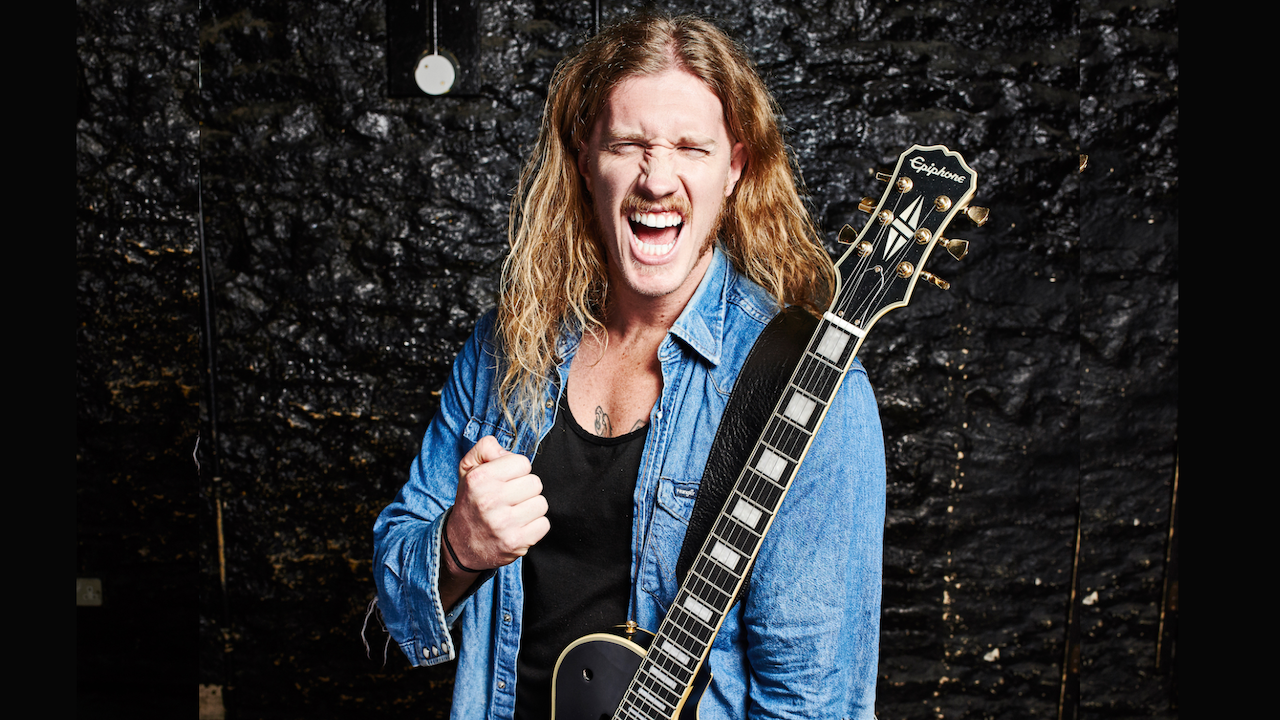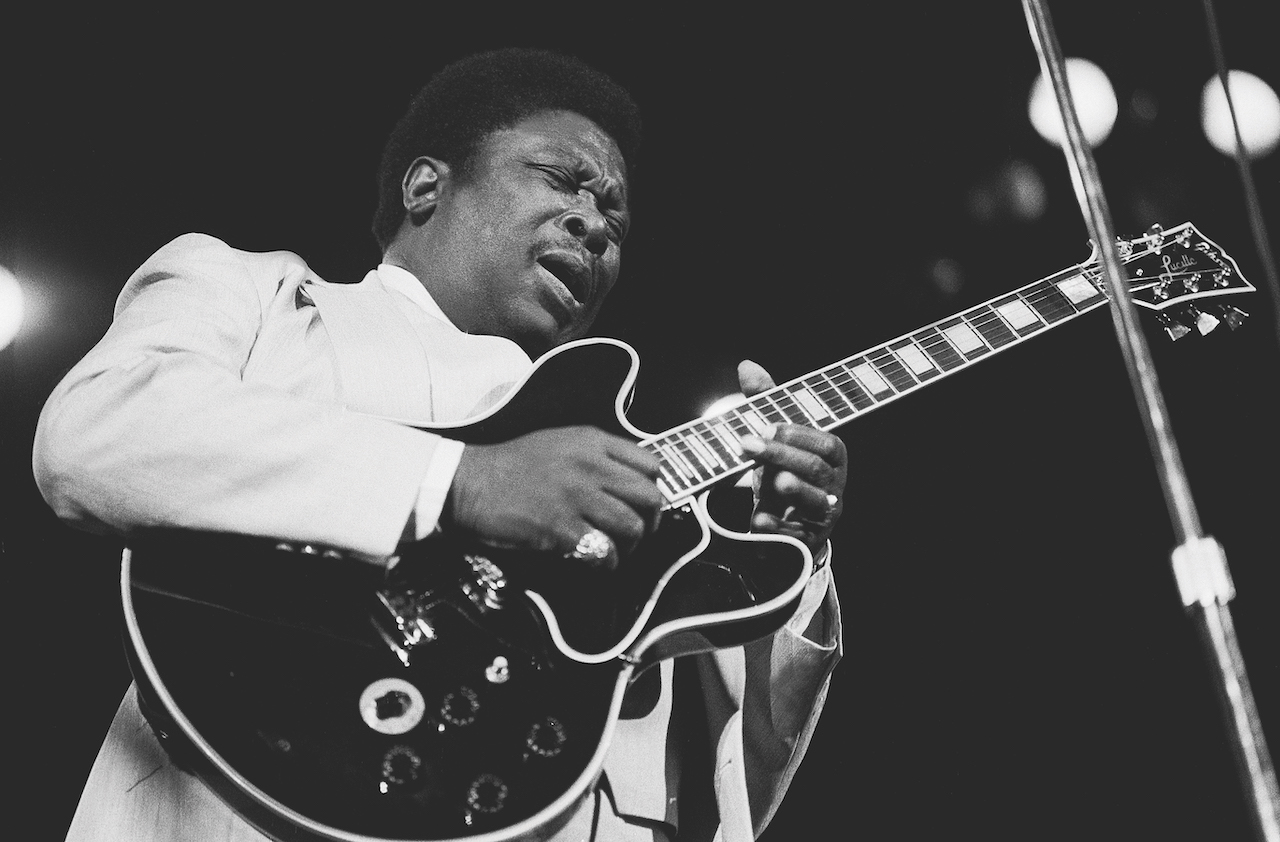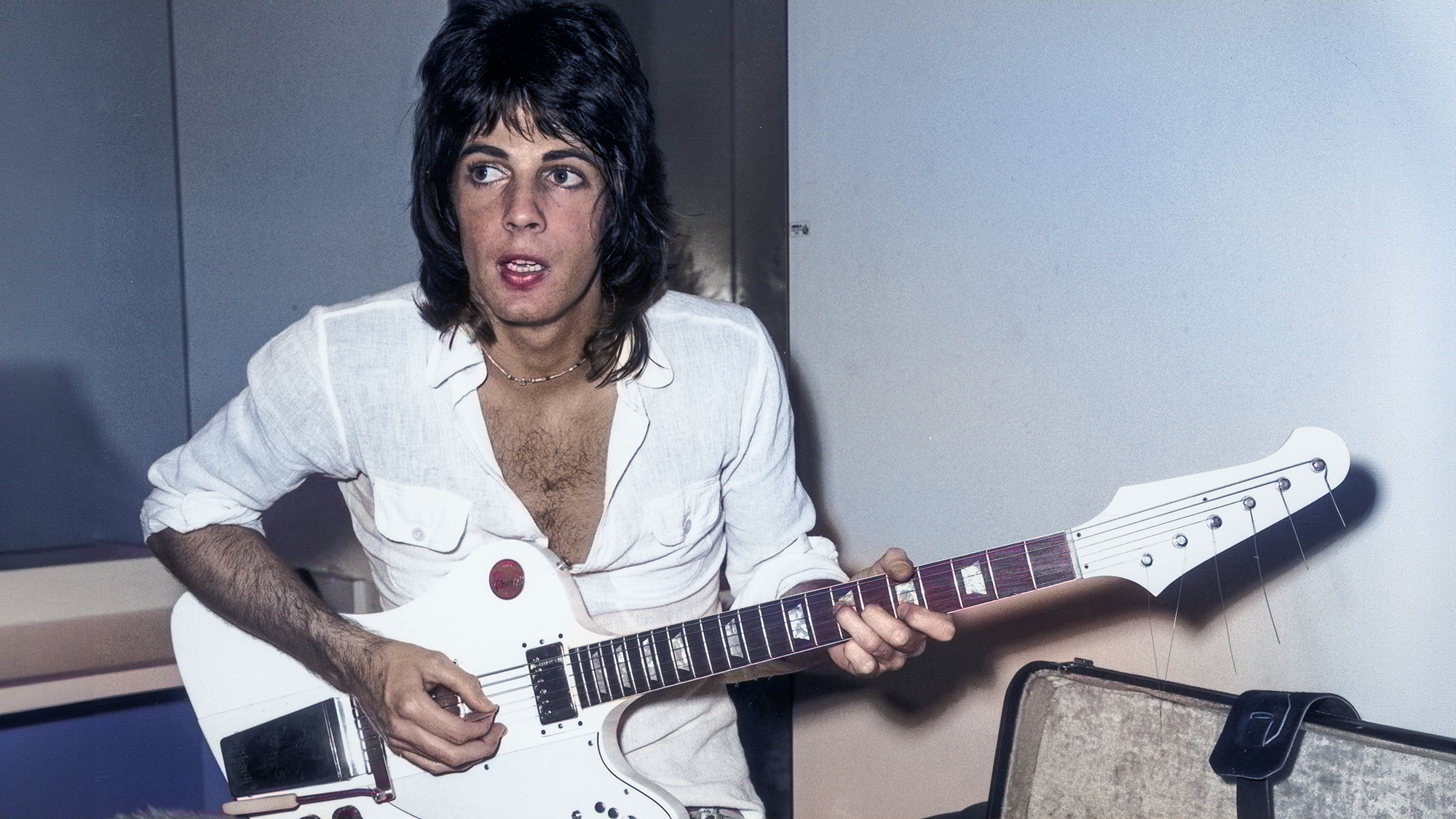"We started jamming and he stopped playing and looked at me and, serious as can be, he said, ‘Slow the f*** down!’ He meant it": Leslie West's invaluable advice for Jared James Nichols

Fast-rising blues rock guitar star Jared James Nichols remembers one of the best tips he ever received from a fellow player — only it came in the form of an order, and from no less than Leslie West.
“It was about a year before Leslie died. I got booked to open for him at B.B. King’s in New York,” Nichols says. “I was so excited. I had to take a red-eye flight to get there, and with all the travel expenses I didn’t make a dime from the show, but I didn’t care. I idolized Leslie and no way was I going to miss a chance to open for him.”
Nichols made it to the venue in time for soundcheck, and as he played he noticed West — seated close by in his electric wheelchair — watching him with keen interest. “At first, Leslie was like, ‘Who are you?’ I introduced myself, and he said, ‘Keep playing.’ I played some more, and then Leslie wheeled over and strapped on his guitar. We started jamming — it was really cool. Finally, he stopped playing and looked at me, and serious as can be he said, ‘Slow the fuck down!’ He meant it.”
After soundcheck, Nichols and West had a chat. For the young guitarist, it was a golden opportunity to pick the brain of a veteran six-string hero. “Leslie was great,” Nichols says. “He said that he really liked my vibrato and tone. I remember him saying, ‘You’ve got great feel and a nice touch. Don’t sacrifice all of that for speed.’ I’ll tell you, it meant a lot to me, and I really took it to heart.”
Nichols has some sage advice of his own to pass along. Who knows? Should you ever find yourself face-to-face onstage with one of your guitar heroes, it could come in handy.
Remember to have fun
“When I do clinics or shows, people ask me, ‘How can I get better on the guitar?’ The first thing I say is, ‘Are you having fun when you play?’ Playing the guitar shouldn’t feel like a chore. Even if you practice for hours a day, you should try to make it enjoyable.
When I was 18, I got a scholarship to Berklee, and I was so psyched. Once I got there, I was hit with this realization that I had to learn all these modes and scales and all this music theory. It was overwhelming, and before long the guitar didn’t feel fun anymore. I literally became afraid to pick up the guitar because I thought I wasn’t any good. It was a terrible headspace to get into. Eventually, I shook myself out of it, and I had to remind myself: Have fun. Play the guitar. If you do that, things will fall into place.”
All the latest guitar news, interviews, lessons, reviews, deals and more, direct to your inbox!
Practice for discovery
“Building on my first tip, I came up with a way to make practice fun. I call it ‘Practice for Discovery.’ When I was learning scales and modes and things, I was just told, ‘You need to know this stuff,’ but I didn’t know why. Then I started listening to Carlos Santana and Gary Moore, and I’d go, ‘Oh, they’re doing this snippet of a scale here. I see what you can do with that.’ Instead of playing a scale mindlessly, I’d play to records and see what those scales could really do in real life.
“I listened to Zeppelin’s ‘Since I’ve Been Loving You,’ and I’d go, ‘Jimmy Page is playing a minor pentatonic, but he adds in this other thing and gets a cool, sad sound.’ That got me to explore the natural minor scale. Suddenly, I knew how to mix things up. It was a way of learning street theory, if you will, but it was also way more exciting than if I were just playing scales that didn’t sound like music.”
Gear won't solve your problems
“As guitarists, we always think if we get that pedal, that guitar or that amp, we’ll be a much better player. The reality is, none of that matters; it’s what’s in your hands, your heart and your head.
“This hit me four or five years ago, when I started touring a lot. I had my first vintage guitar — a 1953 Les Paul — and after a show I ran into my booking agent. I was all excited — ‘Hey, man, did you check out my new guitar? How did it sound?’ He was like, ‘Yeah, it was cool.’ So I said, ‘You don’t understand. It’s a vintage guitar.’ He laughed and said, ‘You guitar players don’t get it. When we’re out in the crowd, we don’t ever notice that stuff. We just hear a guitar. We can’t tell if one cost this much or that much.’
“It knocked the wind out of my sails, but when I started to watch my live videos recorded from the board, I started to realize just how little gear matters when you’re playing live. I remember playing a show one night with an expensive guitar, and during a solo I saw some guy yawn. The next night, I played an inexpensive guitar, and the crowd went crazy. Why? Probably because I played better that night. It wasn’t about the gear; it was about me.”

Passion over perfection
“I never like it when people say, ‘I don’t want to learn theory because it’ll ruin my feel.’ That’s the biggest load of crap I’ve ever heard. I mean, you have to learn the language in order to write a book. Playing music is really no different.
“This goes back to how overwhelmed I felt trying to learn theory at Berklee. I was training my ear and learning how to read and write music, but it was as if I forgot about the human element — why I love music and how it makes me feel. When I put the technical and the human aspect together, I became a better musician in the ways that really matter.
“In a similar vein, when I started to tour a lot, I decided that, even if I might not measure up to the guitarist I hear in my head, I’m going to play with as much passion and gusto as I can. My goal became to connect with people and give them an experience that allowed them to enjoy themselves. I’ve seen a lot of players who are ridiculously talented but don’t connect with people. Conversely, I saw B.B. King play before he passed, and it was a whole different experience. He played very few notes, but it was like watching somebody catch lightning in a bottle.”
Adapt and overcome
"For anybody who is going on the road, you need to know that If something can go wrong, it will go wrong. All kinds of bad crap happens when you’re on tour, and your mission is to somehow deal with it all and play a great show.
“How do you do it? You have to adapt and overcome. In short, you have to be ready for anything. It helps to consider all the problems you might encounter before they happen, and then you’ll be able to deal with them without losing your mind. Every day when I’m on tour, I wake up and think, What do I need to deal with today? That thing that went wrong last night — how can we make sure it doesn’t happen tonight?
“Some artists reach a point where everything is done for them on the road. But the majority of us still have to take on a lot of the day-to-day duties of touring ourselves. It’s like we’re running a small business. I’m both the team owner and the coach, and I have to go out there and lead the team at night. It’s a lot of work, but none of it would run smoothly if I didn’t adapt and overcome.”

Joe is a freelance journalist who has, over the past few decades, interviewed hundreds of guitarists for Guitar World, Guitar Player, MusicRadar and Classic Rock. He is also a former editor of Guitar World, contributing writer for Guitar Aficionado and VP of A&R for Island Records. He’s an enthusiastic guitarist, but he’s nowhere near the likes of the people he interviews. Surprisingly, his skills are more suited to the drums. If you need a drummer for your Beatles tribute band, look him up.
